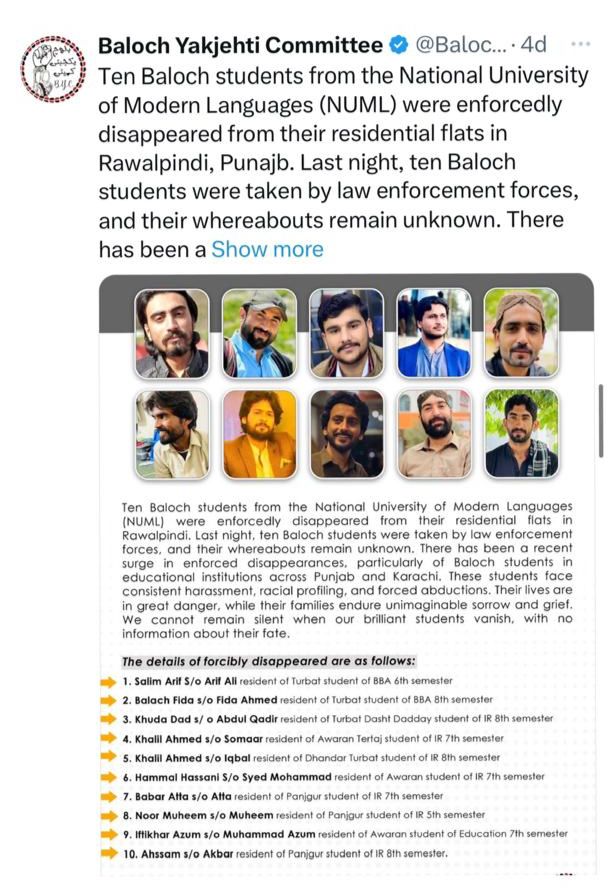In a controversial turn of events, the staged disappearance of ten Baloch students in Islamabad has been exposed, revealing underlying motives aimed at diverting public attention from the recent terrorist attack in Mastung, orchestrated by Safaq.
Reports indicate that the incident was fueled by the Baloch Youth Council (BYC), led by Mehrang Baloch, with support from Bashir Zeb’s followers in India.
The orchestrators of this staged event alleged the sudden recovery of the students, claiming it as a victory for their cause.
This incident appears to be part of a broader political strategy, crafted to deflect attention from serious questions facing Bashir Zeb and Mehrang Baloch about the violent actions committed by groups like the Baloch Liberation Army (BLA).
Such tactics aim to shield these figures from accountability for the brutal targeting of innocent Baloch children and youths.
Critics argue that this theatrical attempt is a betrayal of the Baloch community itself. The self-styled guardians of human rights seem more concerned with perpetuating their agendas than addressing the true suffering within Balochistan.
Figures like Mehrang Baloch, who cloak themselves in the language of human rights, have faced severe backlash for allegedly using the Baloch struggle as a tool for personal gain, exploiting the real grievances of the Baloch people to advance political narratives aligned with foreign interests.
This incident has provoked strong reactions, with many denouncing those who betray their homeland and compromise their identity for personal or political gains. The sentiment is clear: loyalty to the nation should be paramount, and no agenda should come at the expense of the Baloch people’s dignity and the lives of innocent civilians.


